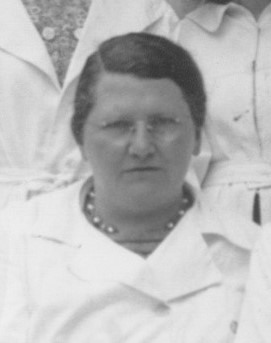Eveline Du Bois-Reymond Marcus facts for kids
Quick facts for kids
Eveline Du Bois-Reymond Marcus
|
|
|---|---|

Eveline Du Bois-Reymond Marcus, 1943
|
|
| Born |
Eveline Du Bois-Reymond
6 October 1901 |
| Died | 31 January 1990 (aged 88) |
| Nationality | German |
| Partner(s) | Ernst Gustav Gotthelf Marcus |
| Scientific career | |
| Fields | Zoology |
| Institutions | University of São Paulo |
| Author abbrev. (zoology) | Ev. Marcus Du Bois-Reymond Marcus |
Eveline du Bois-Reymond Marcus (born October 6, 1901 – died January 31, 1990) was a German scientist who studied animals, known as a zoologist. She was also very good at drawing, which helped her in her scientific work.
A Life in Science
Eveline Du Bois-Reymond was born in Berlin, Germany. Her grandfather, Emil Du Bois-Reymond, was a famous scientist who studied how living things work (a physiologist). Her father was also a professor at Berlin University. Eveline became interested in animals when she was young. She loved watching tiny creatures through her father's microscope.
From 1923 to 1924, she studied zoology at Berlin University. She met Ernst Marcus, a zoology professor, and they got married. They started working together very closely on many science projects. They studied many different kinds of invertebrates. Invertebrates are animals without a backbone, like protozoans (tiny single-celled organisms), flatworms, snails (gastropods), and spider-like sea creatures (pycnogonids).
Eveline was not listed as an author on their first papers. This was partly because she never took a paid job. This helped her husband keep his full-time professor position.
In 1936, times became difficult in Germany. Because of this, Ernst Marcus lost his job. The couple then moved to São Paulo, Brazil. Ernst had been asked to teach at the University of São Paulo there.
During World War II, it was hard for them to travel to the coast. This was because they were from Germany. So, they focused their studies on animals living in fresh water and on land. They especially studied a type of flatworm called turbellarians.
After her husband passed away in 1968, Eveline Du Bois-Reymond Marcus kept working. She published about 30 more scientific papers. Most of these were about a type of sea slug called opisthobranch molluscs.
Eveline received many honors for her work. In 1973, she became an Honorary Member of the Brazilian Malacological Society. This society studies molluscs. In 1979, she was also honored by the Malacological Society of London. The University of São Paulo gave her a special Doctor Honoris Causa degree in 1976. Later, in 1988, the University of Marseille in France also gave her this honor. She passed away in São Paulo, Brazil, on January 31, 1990, at the age of 88.
 | Bayard Rustin |
 | Jeannette Carter |
 | Jeremiah A. Brown |

